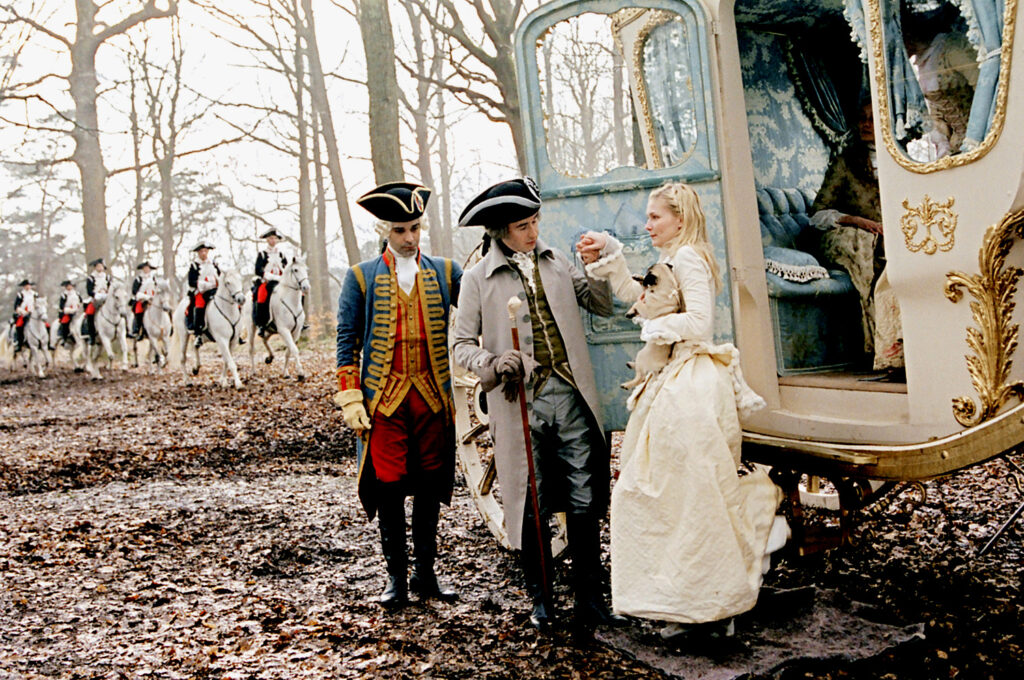
The entire time I was watching the first season of Bridgerton (2020) I kept thinking about Sofia Coppola’s Marie Antoinette (2006). I don’t think Bridgerton would exist without Coppola’s film. Which is probably true of The Great, The Favorite (2018) and Liberté (2019) as well. Coppola’s importing of 21st century culture into an 18th century setting was a concept that was highly underrated at the time of the film’s release. Though Derek Jarman, Federico Fellini, and a handful of others employed this post-modern device earlier it never caught on, it never engaged the zeitgeist in the same was as Marie Antoinette.
I remember when Marie Antoinette came out. I loved Lost In Translation (2003) and was hoping for a film from Coppola that I could connect to similarly. Marie Antoinette definitely isn’t much like Lost In Translation and I knew, even then, that this was a good thing. Marie Antoinette was so much bolder, daring and adventurous than Sofia Coppola’s earlier films. With Marie Antoinette we see Coppola’s style in overdrive, we see a director mature. Now, fifteen years later, I feel that, even though I still prefer Lost In Translation, Marie Antoinette is Sofia Coppola’s best film.
As Bridgerton gains momentum and the fanbase flourishes I hope that people begin to rediscover Coppola’s film. The commentaries in Marie Antoinette on gender, age, class, sex, and identity still feel relevant today. More importantly I think we need to acknowledge the impact of films made by women on our culture more openly, more fairly.
